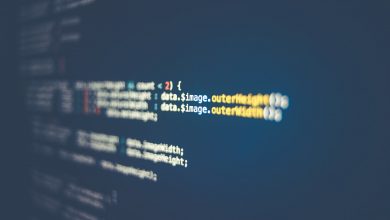
By: Roger James Hamilton
Why do millions of American kids drop out of high school? What can we do about it? Educational technology, or EdTech, has a ready and affordable solution to engage students and keep them in school.
While the dropout rate decreased from 9.7% in 2005 to 5.3% in 2018, that still left 2.1m students ages 16-24 without a high school degree. This is according to the American Community Survey, as reported by the National Center for Education Statistics. In a report sponsored by the Bill & Melinda Gates Foundation titled “The Silent Epidemic: Perspectives of High School Dropouts,” fifty percent of the 470 dropouts interviewed said the reason they dropped out was that the classes were boring and “not relevant to their lives or career.” Equally disturbing, they said that the schools “did not motivate them to work hard.” Approximately one million students drop out each year. African Americans, Hispanics, and Native Americans are hit particularly hard, with half failing to graduate. One of the themes in the report is that students did not feel they had the necessary “academic and personal support” needed to succeed. Perhaps the statement from a Philadelphia high school dropout interviewed for the report sums the problem up best: “There wasn’t anybody to keep me there.”
Most students surveyed said that they did not have a counselor or teacher they could share their problems and frustrations with and that their parents and schools only got involved after it was already too late. In essence, the students seemed to say that they had trouble finding meaning in school. By extension, we can surmise they found no meaning for their lives in school. That's how school loses them.
As Dropout Rates Rise, How Do We Help Students Find Meaning?
Victor Frankl and LogoTherapy are relevant here. Frankl taught that we find meaning in three ways: by doing a deed or creating work, by experiencing someone or something, and through suffering. We all know the stories of students who had a coach or a teacher that helped change their lives, maybe an English teacher or a high school baseball coach who showed a genuine interest in the student. But not every student has that experience in school. And the fact is, there simply are not enough mentors to go around. Though we don’t yet have the final figures on how the Covid-19 pandemic has affected the dropout rate, it does not take much imagination to figure out it can’t be good. We do know that schools across the country have experienced declining enrollment and attendance.
Here’s how EdTech can help. First, we can use robots and artificial intelligence, or A.I., to evaluate students to determine their interests, their passions, what they are good at, and how they learn best. Robots are now being used in therapy, and while they currently are unable to show empathy or think the way humans do, what A.I. can do is nothing short of astonishing. A.I. can read your emotions, it can determine what you are thinking, and it can debate and share alternative views, among many other things.
While it is not the public school’s role to teach a psychology or philosophy of life, they do have our children 8 hours a day, 5 days a week for 13 of the most formative years of their lives. American schools spend $56 billion a year on technology. America has the means to provide every student with what is essentially an A.I.-driven software program that can function as a mentor. A.I. can be used to help students change their thinking. And more than anything, life is about our thoughts. How we think about others, our future, our life, and ourselves in general is formed a significant way by the years we spend in school.
What if students could experience the friendship and wisdom of their own personal robot, anytime, anywhere, as long as they have access to the Internet? What might that be worth to students, teachers, and parents? It is worth finding out.
Here is a sample of how it might work.
The student logs in to his personal A.I. mentor. The robot greets him:
“Hello Steve, how are you feeling today?”
He answers his robot mentor:
“I feel like dropping out of school.”
“Okay. Why?”
“It’s no fun, I don’t like the people.”
Here is how the discussion might develop.
“Steve, why is school not fun for you?”
“I don’t like the people.”
“Steve, I want to learn more, but first I want to remind you of the facts around students who drop out of high school and don’t earn a diploma. Students who drop out earn less, find it harder to get a job, experience higher levels of drug and alcohol abuse, and have higher incarceration and divorce rates. All of the above can lead to unhappiness in life. Have you thought about these things?”
“A little.”
“Are there things you enjoy doing that you might be able to do in school that would make it more fun or interesting?”
“I don’t know.”
“Have you thought about joining a club? One of your interests is drawing. Did you know the school has an art club? It meets Tuesdays at 4 pm. Here are some of the projects they are working on.”
“Also, did you know there is a program called Drawing Plus that can help you improve your drawing skills? There are also several interesting books about drawing. See the list here. What have you drawn recently?”
“I’m working on cartoon characters.”
“Please upload them so I can see them, and I will give you my thoughts.”
The idea here is the A.I. mentor engages Steve, helps him refocus his thinking to consider the consequences of his choices while also encouraging him to stay in school and pursue his interests, suggesting ways he can find meaning in school. An A.I. mentor would remember its past conversations with Steve, his interests, his fears, his anxieties, his favorite hobby or subject. It would recommend a club, books, activities, and new ways of thinking about the issues that are driving his thoughts about dropping out. In the example above, the conversation would naturally evolve into more encouragement and help the student understand that school or work will not always be fun. His robot mentor could also determine through more questions whether he is being bullied or is not getting the help he needs to understand and complete his assignments, and notify his teachers what Steve is experiencing.
Schools could create an A.I.-driven class personalized for the student, titled for example, How to Win Friends and Influence People, based on the best-selling classic book by Dale Carnegie, which teaches principles of success that have changed millions of lives across the world. Time magazine ranked it number 19 of the 100 most influential books. Schools should provide an escape from social media and pop culture messages that too often teach that life is primarily about the pursuit of pleasure. An A.I. mentor programmed with the success principles in Carnegie’s classic work could serve as a counterbalance to the negative and self-destructive messages that too often drown out success-oriented thinking.
In fact, a student could be assigned an A.I. mentor that stays with him from kindergarten through graduation and maybe beyond. It could be programmed to encourage students when they need it most, to teach principles of success, to teach the art of never giving up, to teach all those things that make life meaningful. In sum, the A.I. mentor could help the student understand and reinforce this very important life principle found in How to Win Friends and Influence People. “It isn’t what you have or who you are or where you are or what you are doing that makes you happy or unhappy. It is what you think about.” Change your thinking, change your life. Bring on the A.I. mentors. There are millions of students who need them.





Leave a Reply
Thank you for your response.
Please verify that you are not a robot.